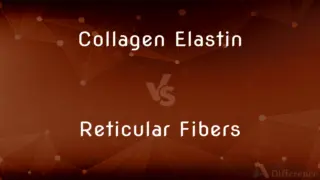Acknowledge vs. Confirm — What's the Difference?
By Urooj Arif & Fiza Rafique — Updated on March 9, 2024
Acknowledge implies recognition or admission of something, often used in communication, while confirm means to establish the truth or validity of information.

Difference Between Acknowledge and Confirm
Table of Contents
ADVERTISEMENT
Key Differences
Acknowledging something typically involves recognizing or admitting its existence, receipt, or validity. It's a way to show that one has noticed or become aware of something. For example, acknowledging an email means indicating that you have received and read it. On the other hand, confirming something goes a step further by verifying or validating that information, decision, or action is true, accurate, or agreed upon. Confirming a meeting date, for instance, means both parties have agreed on the time and place and that it is officially set.
While acknowledgment can be informal or formal, serving as a courtesy or initial recognition of a situation or information, confirmation usually carries a more formal and definitive weight. Acknowledging an issue in a project, for instance, means recognizing its presence. In contrast, confirming the issue means having evidence or consensus that the problem exists and needs addressing.
Acknowledgment often precedes confirmation in communication processes. Initially, one might acknowledge receipt of a request or information, indicating that it has been seen or understood. Confirmation would follow as a separate step, after verifying details or agreeing on terms, to establish the information’s accuracy or the agreement’s finality.
Acknowledgment does not require action beyond the recognition itself, such as acknowledging someone's feelings or an event's significance. However, confirmation typically necessitates further steps or evidence, ensuring that all parties have a mutual understanding or agreement, like confirming attendance at an event or the accuracy of a report.
Understanding the nuances between acknowledgment and confirmation is crucial in effective communication, ensuring clarity in the progression from recognizing information or a situation to validating or agreeing upon it. While acknowledgment opens the door for further interaction or validation, confirmation closes the loop, providing a definitive stance or agreement.
ADVERTISEMENT
Comparison Chart
Definition
Recognize or admit the existence or truth of something
Establish the truth or validity of something with evidence or agreement
Formality
Can be informal or formal
Usually formal and definitive
Process
Often an initial step in communication
Follows acknowledgment, verifying or agreeing on details
Requirement
No further action beyond recognition needed
Requires evidence or agreement to verify details
Examples
Acknowledging receipt of a message
Confirming an appointment or agreement
Compare with Definitions
Acknowledge
To recognize or admit the existence of something.
She acknowledged the complexity of the situation.
Confirm
To make a decision or agreement definite.
The manager confirmed the project's deadline after consulting with the team.
Acknowledge
To express recognition for a contribution or fact.
The author acknowledged her mentor in the book's preface.
Confirm
To corroborate evidence or information.
Witnesses confirmed seeing the suspect at the scene.
Acknowledge
To indicate awareness without necessarily agreeing.
I acknowledge your concerns but believe this is the best course of action.
Confirm
To verify an arrangement officially.
Please confirm your attendance at the meeting by end of day.
Acknowledge
To show receipt of something.
He acknowledged receiving the email by replying promptly.
Confirm
To reaffirm the validity of something.
The review confirmed the device's high performance as advertised.
Acknowledge
To greet or respond to someone's presence.
She acknowledged her colleague's greeting with a smile.
Confirm
To establish the truth or correctness of something.
The scientist confirmed the experiment's results through repeated tests.
Acknowledge
Accept or admit the existence or truth of
The plight of the refugees was acknowledged by the authorities
The government acknowledged that the tax was unfair
‘That's true,’ she acknowledged
Confirm
To support or establish the certainty or validity of; verify
Confirm a rumor.
Acknowledge
Recognize the importance or quality of
The hotel is widely acknowledged as one of Cornwall's finest
The art world has begun to acknowledge his genius
Confirm
To reaffirm the establishment of (a reservation or advance arrangement).
Acknowledge
Show that one has noticed or recognized (someone) by making a gesture or greeting
She refused to acknowledge my presence
Confirm
To make firmer; strengthen
Working on the campaign confirmed her intention to go into politics.
Acknowledge
To admit the existence or truth of
The doctors acknowledged that the treatment had not been successful.
Confirm
To make valid or binding by a formal or legal act; ratify.
Acknowledge
To express recognition of; make notice of
"When he saw me acknowledge him, he smiled as if we were dear friends" (Angela Patrinos).
Confirm
To administer the religious rite of confirmation to.
Acknowledge
To express gratitude or appreciation for or to
Acknowledged the contributions of the volunteers.
Acknowledged her editor in the preface to the book.
Confirm
To strengthen; to make firm or resolute.
Acknowledge
To report the receipt of (something) to the sender or giver
Acknowledge a letter.
Confirm
To administer the sacrament of confirmation on (someone).
Acknowledge
(Law) To accept or certify as legally binding
Acknowledge a deed of ownership.
Confirm
To assure the accuracy of previous statements.
Acknowledge
(transitive) To admit the knowledge of; to recognize as a fact or truth; to declare one's belief in
To acknowledge the being of a god
Confirm
To make firm or firmer; to add strength to; to establish; as, health is confirmed by exercise.
Confirm the crown to me and to mine heirs.
And confirmed the same unto Jacob for a law.
Acknowledge
(transitive) To own or recognize in a particular quality, character or relationship; to admit the claims or authority of; to give recognition to.
Confirm
To strengthen in judgment or purpose.
Confirmed, then, I resolveAdam shall share with me in bliss or woe.
Acknowledge
(transitive) To be grateful of (e.g. a benefit or a favour)
To acknowledge a favor
Confirm
To give new assurance of the truth of; to render certain; to verify; to corroborate; as, to confirm a rumor.
Your eyes shall witness and confirm my tale.
These likelihoods confirm her flight.
Acknowledge
(transitive) To report (the receipt of a message to its sender).
This is to acknowledge your kind invitation to participate in the upcoming debate.
Confirm
To render valid by formal assent; to complete by a necessary sanction; to ratify; as, to confirm the appoinment of an official; the Senate confirms a treaty.
That treaty so prejudicial ought to have been remitted rather than confimed.
Acknowledge
(transitive) To own as genuine or valid; to assent to (a legal instrument) to give it validity; to avow or admit in legal form.
Confirm
To administer the rite of confirmation to. See Confirmation, 3.
Those which are thus confirmed are thereby supposed to be fit for admission to the sacrament.
Acknowledge
To own or admit the knowledge of; to recognize as a fact or truth; to declare one's belief in; as, to acknowledge the being of a God.
I acknowledge my transgressions.
For ends generally acknowledged to be good.
Confirm
Establish or strengthen as with new evidence or facts;
His story confirmed my doubts
The evidence supports the defendant
Acknowledge
To own or recognize in a particular character or relationship; to admit the claims or authority of; to give recognition to.
In all thy ways acknowledge Him.
By my soul, I'll ne'er acknowledge thee.
Confirm
Strengthen or make more firm;
The witnesses confirmed the victim's account
Acknowledge
To own with gratitude or as a benefit or an obligation; as, to acknowledge a favor, the receipt of a letter.
They his gifts acknowledged none.
Confirm
Make more firm;
Confirm thy soul in self-control!
Acknowledge
To own as genuine; to assent to, as a legal instrument, to give it validity; to avow or admit in legal form; as, to acknowledge a deed.
Confirm
As of a person to a position;
The Senate confirmed the President's candidate for Secretary of Defense
Acknowledge
Declare to be true or admit the existence or reality or truth of;
He admitted his errors
She acknowledged that she might have forgotten
Confirm
Administer the rite of confirmation to;
The children were confirmed in their mother's faith
Acknowledge
Report the receipt of;
The program committee acknowledged the submission of the authors of the paper
Acknowledge
Express recognition of the presence or existence of, or acquaintance with;
He never acknowledges his colleagues when they run into him in the hallway
She acknowledged his complement with a smile
It is important to acknowledge the work of others in one's own writing
Acknowledge
Express obligation, thanks, or gratitude for;
We must acknowledge the kindness she showed towards us
Acknowledge
Accept as legally binding and valid;
Acknowledge the deed
Acknowledge
Accept (someone) to be what is claimed or accept his power and authority;
The Crown Prince was acknowledged as the true heir to the throne
We do not recognize your gods
Common Curiosities
Can one acknowledge and confirm at the same time?
While acknowledgment and confirmation are distinct steps, in some informal contexts, they may occur simultaneously, depending on the situation's clarity and the communication's simplicity.
What does it mean to acknowledge something?
Acknowledging something means recognizing or admitting its existence, receipt, or validity, often as an initial step in communication.
Can acknowledgment replace confirmation?
No, acknowledgment is a preliminary step, while confirmation is a definitive action that verifies or agrees on specifics.
Is confirmation always necessary?
Confirmation is necessary when a definitive agreement, understanding, or verification of facts is required.
Can you confirm something without acknowledging it?
Typically, acknowledgment precedes confirmation as recognizing something's existence or receipt is a prerequisite for its verification.
What does it mean to confirm something?
Confirming something involves verifying or establishing the truth, accuracy, or validity of information or an agreement.
How does confirmation affect agreements or decisions?
Confirmation solidifies agreements or decisions, ensuring that all parties have a clear, mutual understanding or agreement.
Why is acknowledgment important in communication?
Acknowledgment shows that one has noticed or understood something, which is vital for effective communication and progression to further actions or discussions.
How do acknowledgment and confirmation relate to trust?
Both are foundational to building trust in relationships, with acknowledgment showing respect and understanding, and confirmation ensuring reliability and agreement.
How do acknowledgment and confirmation contribute to clarity in communication?
They ensure clarity by sequentially recognizing and then verifying information or agreements, reducing misunderstandings and miscommunications.
Is acknowledgment a form of agreement?
Acknowledgment does not necessarily imply agreement; it's more about recognition or admission of something.
Does confirmation require additional evidence?
Yes, confirmation often requires evidence or further agreement to establish the truth or validity of something.
What role does confirmation play in planning?
Confirmation plays a critical role in planning by establishing agreed-upon details, dates, or actions, ensuring all parties are aligned.
Are there situations where only acknowledgment is sufficient?
Yes, in some cases, such as recognizing someone's feelings or contributions, acknowledgment alone is sufficient and valued.
Can acknowledgment be implied?
Yes, acknowledgment can be implied through actions or non-verbal cues, though explicit acknowledgment is clearer.
Share Your Discovery

Previous Comparison
Reweigh vs. Reweight
Next Comparison
Learning vs. LearningsAuthor Spotlight
Written by
Urooj ArifUrooj is a skilled content writer at Ask Difference, known for her exceptional ability to simplify complex topics into engaging and informative content. With a passion for research and a flair for clear, concise writing, she consistently delivers articles that resonate with our diverse audience.
Co-written by
Fiza RafiqueFiza Rafique is a skilled content writer at AskDifference.com, where she meticulously refines and enhances written pieces. Drawing from her vast editorial expertise, Fiza ensures clarity, accuracy, and precision in every article. Passionate about language, she continually seeks to elevate the quality of content for readers worldwide.














































